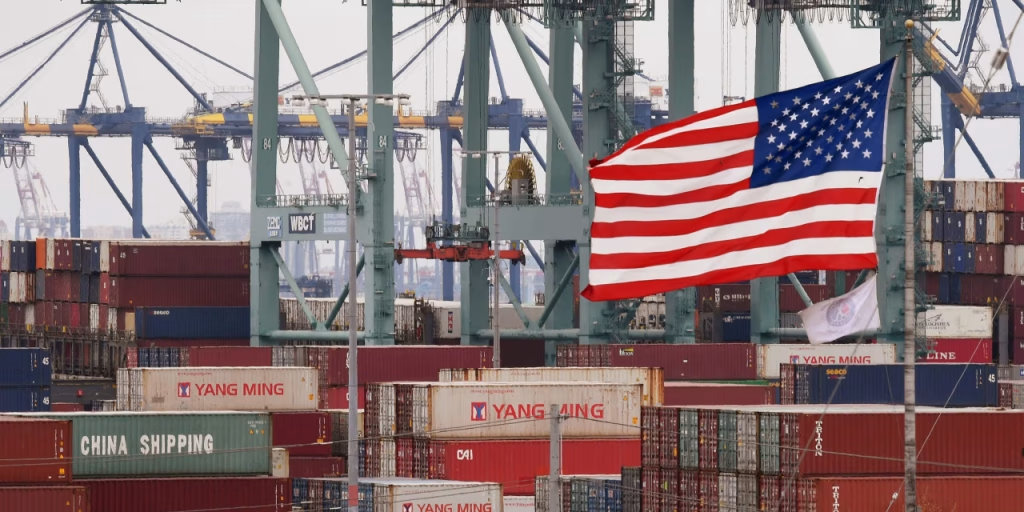The United States government has flagged corruption and lack of transparency as major obstacles to trade and investment in Nigeria.
In its latest 2025 National Trade Estimate Report on Foreign Trade Barriers, the Office of the United States Trade Representative (USTR) outlined multiple challenges faced by U.S. companies operating in Nigeria.
According to the report, U.S. businesses regularly encounter inappropriate demands for “facilitative” payments from officials, with anti-corruption efforts often hindered by internal political struggles and inefficiencies within the Nigerian justice system.
The USTR raised concerns about Nigeria’s limited capacity to secure convictions and enforce penalties for corruption-related offenses, weakening investor confidence.

The report also criticized Nigeria for delaying the approval of import permits for American agricultural products. Despite continuous negotiations since 2019, Nigeria has been slow to respond, creating long-standing trade barriers and limiting U.S. market access.
Further complicating trade, Nigeria’s inconsistent application of sanitary and phytosanitary regulations has caused confusion and hindered compliance among exporters.
READ ALSO: IBM Unveils $150 Billion Investment Plan to Boost U.S. Tech
Beyond agriculture, systemic issues in Nigeria’s customs administration—such as corruption, manual processes, and inconsistent trade rule enforcement—continue to frustrate businesses. Although the Nigerian government initiated a $3.1 billion customs modernization project in 2020 to automate processes, progress has been marred by delays and legal disputes.

The USTR also took issue with Nigeria’s restrictive import regime. While the country’s average Most-Favoured Nation (MFN) tariff rate was 12% in 2023, agricultural products faced higher tariffs at nearly 16%.
Nigeria further complicates trade by imposing additional fees that significantly increase import costs. Moreover, 25 product categories, including poultry, beef, used vehicles over 12 years old, and fruit juice in retail packs, remain banned—creating further obstacles for U.S. exporters.
Concerns were also raised regarding Nigeria’s public procurement practices. U.S. companies reportedly face difficulties accessing government contracts due to a lack of transparency, irregular contract payments, and favoritism toward foreign governments that offer subsidized financing.

Intellectual property rights enforcement remains weak, with counterfeit goods—ranging from pharmaceuticals to automotive parts—proliferating across Nigerian markets, posing risks to consumer health and safety.
In the digital space, the USTR criticized Nigeria’s data localization requirements, which mandate that citizen data be stored within the country.
READ ALSO: Germany’s Merz Announces Katherina Reiche, Johann Wadephul to Lead Economy and Foreign Affairs
These rules, though not strictly enforced, create uncertainty for businesses operating in Nigeria’s growing digital economy. New digital service taxes introduced through the 2020 and 2021 Finance Acts have also sparked concern among American tech companies.
Restrictions in Nigeria’s reinsurance and advertising sectors further limit foreign participation, particularly in oil and gas risk reinsurance and media registration requirements with the Advertising Regulatory Council of Nigeria.
While Nigeria’s Central Bank made moves in 2023 to unify the foreign exchange market and lift bans on certain items, the report noted that companies still experience delays and denials in fund repatriation processes. As of March 2024, $2.4 billion in forex backlogs remained unresolved out of a total estimated $7 billion.

Nigeria’s port inefficiencies also came under scrutiny. Apapa Port in Lagos, one of the country’s busiest, was described as among the world’s most expensive due to congestion, outdated infrastructure, and maritime insecurity.
Despite the creation of a new Ministry of Marine and Blue Economy aimed at improving port operations, the USTR concluded that significant trade and investment barriers persist across Nigeria.
The report underscores the urgent need for Nigeria to implement structural reforms if it hopes to attract more foreign direct investment and strengthen trade relations with the United States.
Discover more from Scoop Hub
Subscribe to get the latest posts sent to your email.

